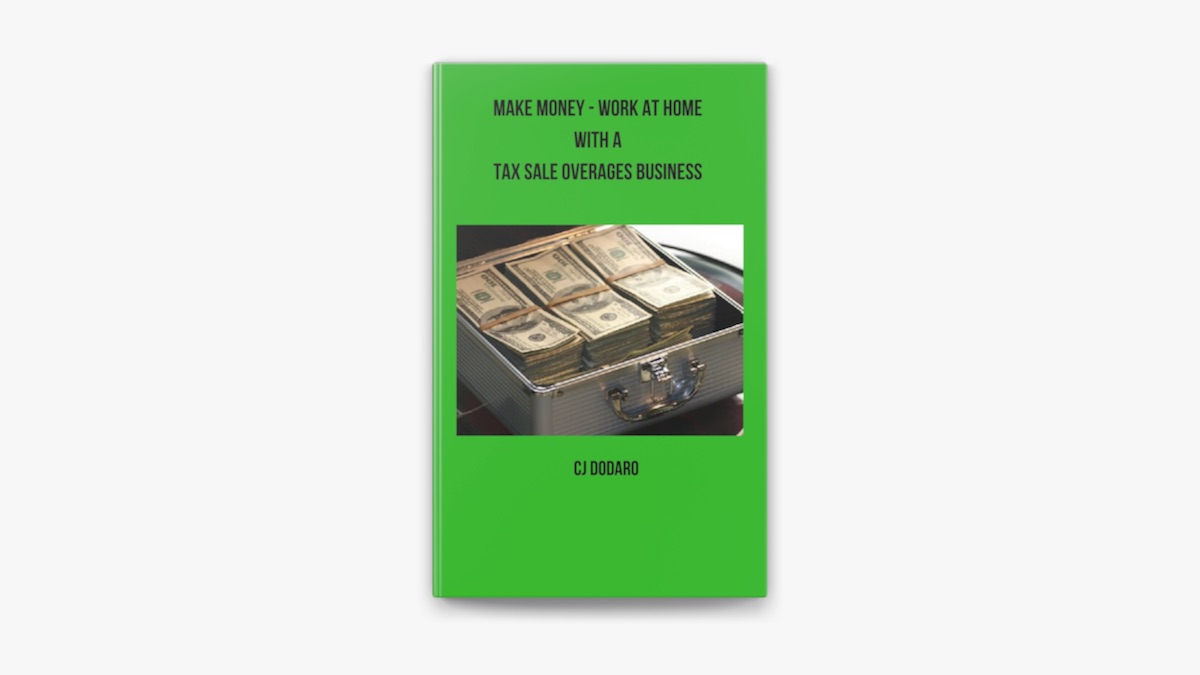All Categories
Featured
Table of Contents
Most of those home owners really did not even know what overages were or that they were also owed any surplus funds at all. When a property owner is not able to pay property tax obligations on their home, they may lose their home in what is recognized as a tax obligation sale auction or a constable's sale.
At a tax obligation sale auction, properties are marketed to the greatest prospective buyer, however, in some situations, a residential property may cost more than what was owed to the county, which leads to what are referred to as surplus funds or tax sale excess. Tax obligation sale overages are the money left over when a confiscated building is marketed at a tax sale public auction for more than the amount of back tax obligations owed on the residential property.
If the home sells for greater than the opening quote, then overages will be produced. What a lot of homeowners do not recognize is that several states do not enable areas to maintain this added money for themselves. Some state laws determine that excess funds can just be asserted by a couple of parties - consisting of the person that owed tax obligations on the residential or commercial property at the time of the sale.
If the previous homeowner owes $1,000.00 in back taxes, and the residential property markets for $100,000.00 at auction, after that the regulation states that the previous homeowner is owed the distinction of $99,000.00. The region does not reach maintain unclaimed tax excess unless the funds are still not declared after 5 years.
Comprehensive Tax Deed Overages Learning How To Recover Tax Sale Overages
However, the notice will typically be sent by mail to the address of the residential or commercial property that was marketed, but given that the previous residential or commercial property owner no more lives at that address, they usually do not receive this notice unless their mail was being sent. If you remain in this circumstance, don't allow the federal government keep cash that you are qualified to.

From time to time, I listen to speak about a "secret brand-new possibility" in business of (a.k.a, "excess proceeds," "overbids," "tax sale excess," etc). If you're entirely unknown with this principle, I would love to give you a quick overview of what's taking place here. When a homeowner quits paying their building taxes, the neighborhood community (i.e., the area) will certainly wait for a time prior to they seize the residential or commercial property in repossession and offer it at their annual tax sale auction.
utilizes a similar model to recoup its lost tax income by offering residential properties (either tax obligation actions or tax liens) at a yearly tax obligation sale. The information in this post can be affected by many unique variables. Constantly seek advice from a qualified attorney before taking activity. Expect you have a property worth $100,000.
Tailored Overages Surplus Funds Blueprint Real Estate Overage Recovery

At the time of repossession, you owe ready to the region. A couple of months later on, the area brings this residential property to their annual tax obligation sale. Below, they market your property (along with dozens of other overdue homes) to the highest possible bidderall to redeem their shed tax profits on each parcel.
Many of the financiers bidding on your property are totally mindful of this, as well. In several instances, residential or commercial properties like your own will certainly get quotes Much beyond the quantity of back tax obligations really owed.
Obtain this: the county just required $18,000 out of this property. The margin in between the $18,000 they required and the $40,000 they got is referred to as "excess proceeds" (i.e., "tax obligation sales overage," "overbid," "excess," etc). Many states have statutes that forbid the region from maintaining the excess repayment for these residential or commercial properties.
The area has guidelines in area where these excess profits can be asserted by their rightful proprietor, normally for a designated duration (which differs from one state to another). And that specifically is the "rightful proprietor" of this money? It's YOU. That's! If you shed your residential property to tax obligation foreclosure because you owed taxesand if that home ultimately sold at the tax obligation sale public auction for over this amountyou could feasibly go and gather the difference.
Tax And Mortgage Overages Unclaimed Tax Overages
This includes confirming you were the previous proprietor, completing some paperwork, and waiting for the funds to be supplied. For the average individual who paid full market price for their residential or commercial property, this approach doesn't make much sense. If you have a severe quantity of cash money spent right into a building, there's way too a lot on the line to just "let it go" on the off-chance that you can bleed some additional cash out of it.
For instance, with the investing method I use, I could acquire residential properties free and clear for pennies on the buck. To the surprise of some capitalists, these offers are Assuming you know where to look, it's frankly easy to find them. When you can buy a residential or commercial property for a ridiculously affordable rate AND you know it deserves substantially more than you spent for it, it might extremely well make feeling for you to "chance" and try to collect the excess proceeds that the tax repossession and public auction procedure produce.
Trusted Tax Sale Overages Program Unclaimed Tax Sale Overages
While it can definitely pan out similar to the method I've explained it above, there are also a few drawbacks to the excess earnings approach you really should know. Bob Diamond Tax Sale Overages. While it depends significantly on the features of the home, it is (and sometimes, most likely) that there will be no excess profits produced at the tax sale public auction
Or probably the county doesn't generate much public interest in their auctions. Either means, if you're acquiring a building with the of letting it go to tax repossession so you can accumulate your excess proceeds, what if that money never ever comes with?
The first time I pursued this technique in my home state, I was told that I really did not have the alternative of declaring the excess funds that were created from the sale of my propertybecause my state really did not allow it (Best States for Tax Overages). In states like this, when they create a tax obligation sale overage at an auction, They just keep it! If you're thinking of utilizing this technique in your company, you'll intend to assume long and tough about where you're doing organization and whether their laws and statutes will also allow you to do it
Sought-After Real Estate Overages Strategy Real Estate Overages
I did my ideal to provide the appropriate response for each state above, but I 'd recommend that you prior to waging the assumption that I'm 100% proper. Keep in mind, I am not an attorney or a certified public accountant and I am not trying to break down expert lawful or tax obligation suggestions. Talk to your attorney or certified public accountant before you act on this information.
Latest Posts
What Is A Tax Lien Sale
Government Property Tax Sale
Tax Sale Blueprint Cost